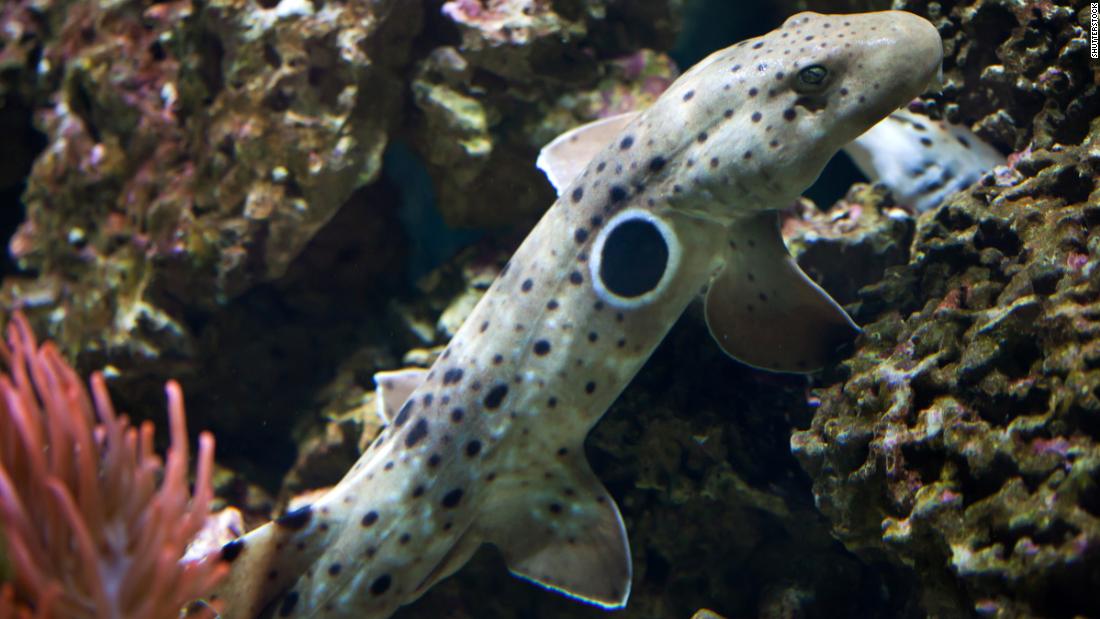The research team found that shark embryos grew faster in warmer waters and used their yolk sac – their only food source in this developmental phase – faster.
The animals that hatched earlier were born smaller and had to feed immediately, but they did not have energy, researchers from the Australian ARC Center of Excellence for Coral Reef Studies at James Cook University and the University of Massachusetts said on Tuesday.
There are more than 500 species of sharks living around the world, and the majority bring young ones to life. Some shark species, such as epaulette sharks, lay eggs that are left unprotected and must be able to survive on their own for up to four months.
“The epaulette shark is known for its resilience to change, even to the acidification of the ocean,” Jodie Rummer, co-author and associate professor at the ARC Center of Excellence for Coral Reef Studies, said in a statement. “So if this species can not handle hot water, how will other, less tolerant species fare?”
The Great Barrier Reef is the largest coral reef in the world, covering approximately 133,000 square kilometers and is home to more than 1,500 species of fish, 411 species of hard coral and dozens of other species.
Rummer said the rising ocean temperatures could threaten future sharks, including eggs and live-bearing species, because as the temperature rises, the creatures will be born or hatch in environments they can barely tolerate.
“The study offers a worrying future as sharks are already threatened,” lead author Carolyn Wheeler said in a statement.
“Sharks are important predators that keep ocean ecosystems healthy. Without predators, entire ecosystems could collapse, so we need to continue to study and protect these creatures,” said Wheeler, a PhD candidate at the ARC Center of Excellence for Coral Reef Studies, added. .
“Our future ecosystems depend on (or we) act urgently to limit climate change,” Rummer said.
The study was published in the Journal Scientific Reports.
A warmer ocean also contributes to increased rainfall and leads to stronger and prolonged storms such as Hurricanes Florence and Harvey.
Marine heat waves that have killed parts of the earth’s coral reefs are likely to have doubled in frequency and are expected to become more widespread and intense, an important report by the United Nations Intergovernmental Panel on Climate Change in 2019 is found.
CNN’s Jen Christensen, Ivana Kottasová and Drew Kann reported.
